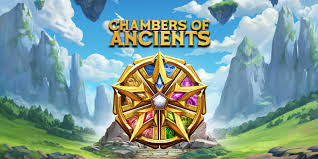The technological advancements of ancient civilizations showcase the ingenuity and creativity of early humans. From early tools to complex machines, these innovations laid the groundwork for modern conveniences and scientific progress.
The Wheel: A Revolutionary Invention Chambers of Ancients Slots
The invention of the wheel is often regarded as one of the most significant technological breakthroughs in human history. Emerging around 3500 B.C. in Mesopotamia, the wheel revolutionized transportation and trade Nhà cái 8kbet.
Before its creation, heavy loads were moved using sledges or carried by animals, limiting the scope of trade and exploration. The wheel enabled the development of vehicles that could navigate rough terrain more efficiently. This innovation contributed to the expansion of trade routes, fostering cultural exchange and economic growth.
Moreover, the wheel was not limited to transportation; it found applications in pottery making and milling grains, further enhancing productivity and craftsmanship in ancient societies.
Ancient Medicine: A Blend of Science and Spirituality
Ancient civilizations made significant strides in medicine, often blending empirical observation with spiritual rituals. Egyptian medicine, for instance, employed a combination of herbal remedies and surgical techniques.
The Ebers Papyrus, dating back to 1550 B.C., is one of the oldest known medical texts, detailing various ailments and treatments. It reflects a deep understanding of anatomy and physiology, showcasing the Egyptians’ commitment to healing.
Similarly, ancient Indian texts like the Ayurveda outlined holistic approaches to health, emphasizing diet, lifestyle, and natural remedies. These practices demonstrate that the quest for wellness transcends time and culture, laying the foundation for modern medicine.
Astronomy and Navigation: Charting the Skies
The ancient world’s fascination with astronomy led to remarkable discoveries and advancements in navigation. Civilizations such as the Babylonians and Ancient Greeks meticulously recorded celestial movements, leading to the creation of early astronomical calendars.
The astrolabe, developed by Greek astronomers, allowed sailors to determine their latitude based on the position of stars. This innovation greatly improved maritime navigation and facilitated trade across vast oceans.
Understanding celestial patterns was not solely for practical purposes; it also played a vital role in religious ceremonies and agricultural cycles. The ability to predict seasonal changes based on astronomical observations demonstrated a profound connection between humanity and the cosmos.
Metallurgy and Craftsmanship: Forging a New Era
The development of metallurgy transformed ancient societies, enabling the creation of tools, weapons, and art. Early civilizations began using copper, followed by bronze, which marked the beginning of the Bronze Age.
Bronze tools were stronger and more durable than their stone counterparts, allowing for advancements in agriculture and warfare. This newfound strength empowered societies, facilitating territorial expansion and increased competition among rival factions Chambers of Ancients Slots.
Moreover, ancient artisans mastered the art of metallurgy, creating intricate jewelry, decorations, and ceremonial objects. These artifacts provide insight into cultural values and aesthetic preferences, illustrating how technology and artistry coexisted in ancient times.


